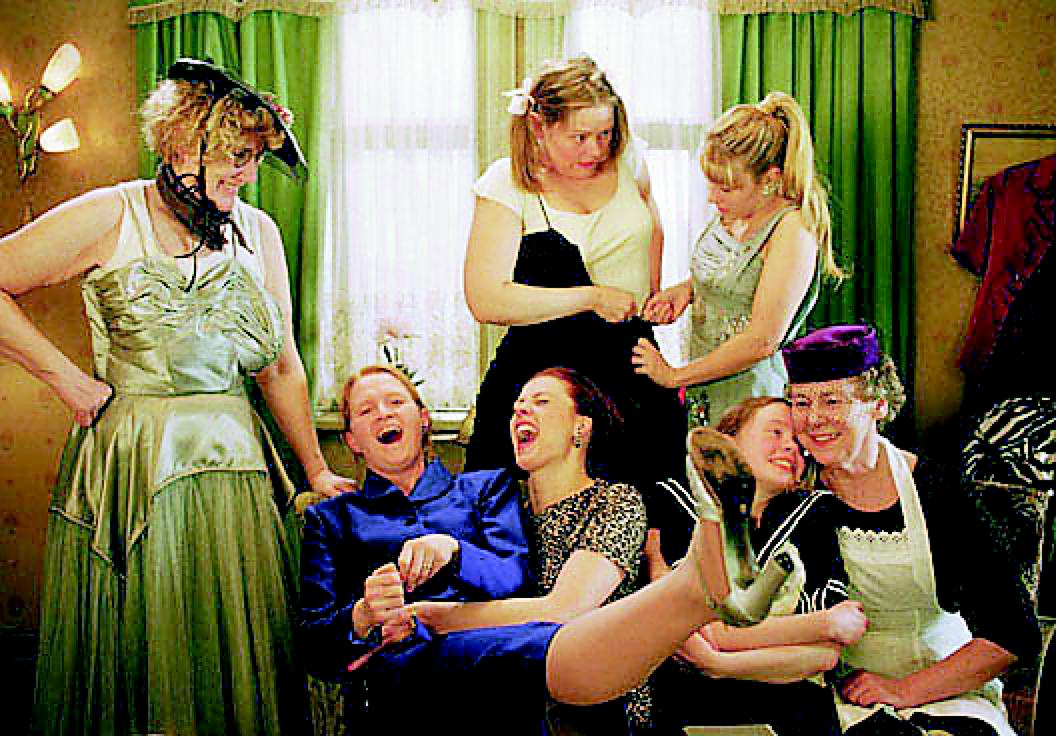The comedy/drama is set in post-World War II Iceland and concerns a female-filled family whose lives are turned upside down when a distant cousin returns, out of the blue, from America. Freyja (Margrét Vilhjálmsdóttir) is more than a little out of place in small-town Iceland. A chubby wallflower when she married an American flyboy and split the hinterlands years ago, Freyja is now an impossibly glamorous widow with a Rita Hayworth figure, a waterfall of brunette hair and seven trunks full of glittery cocktail dresses. Her relatives, bored by absent husbands and dull lives, seize on the newly transplanted Freyja like a savior. Young Agga (Ulga Egilsdóttir), however, isn't quite sure what to think of this familiar stranger. Teetering on the brink of puberty, Agga views her cousin with a mixture of admiration and jealousy. For some reason, Agga doesn't trust Freyja, and immediately dubs her “evil”–an assertion no one else in the family seems interested in listening to.
As Freyja re-acclimates to her former stomping grounds, she naturally attracts the attentions of most red-blooded men in town. Eventually, she falls for an uptight engineer, unleashing the film's multiple story lines about sexual and class differences.
Freyja is played by Vilhjálmsdóttir as an unstoppable elemental force. Something between a Viking goddess and a women's lib pioneer, Freyja is soon crushing the hearts of men and uplifting the souls of women. All except Agga, of course, who, in her childish imagination, believes that Freyja might be responsible for bumping off an abusive husband or two. Egilsdóttir, Iceland's answer to a young Christina Ricci, does a fine job delimitating her character's conflicted emotions over her cousin's formidable brand of maturity and sexuality. It's easy to admire (or fall in love with) Freyja, for example, when she manhandles a gang of teenage bullies who are teasing her mentally handicapped relative. It's also just as easy to be frightened of her when she dominates her snobby mother-in-law with fiendish glee.
The film hints at elements of the supernatural. Freyja's nocturnal walks in a garden of eerily anthropomorphic rocks suggest that perhaps she is some sort of fairy, sent to beguile and bewilder these simple townsfolk. (Residents of Iceland reportedly have a very strong belief in fairies, elves and the like.) Keep in mind, however, that the film is seen largely through the eyes of Agga, who is likely to view the world through her own warped childhood filter. Though it feels, occasionally, like a dark fairy tale of awakening sexuality, The Seagull's Laughter remains a practical-minded and pragmatic narrative about female solidarity, frigid latitudes and icy black humor.



